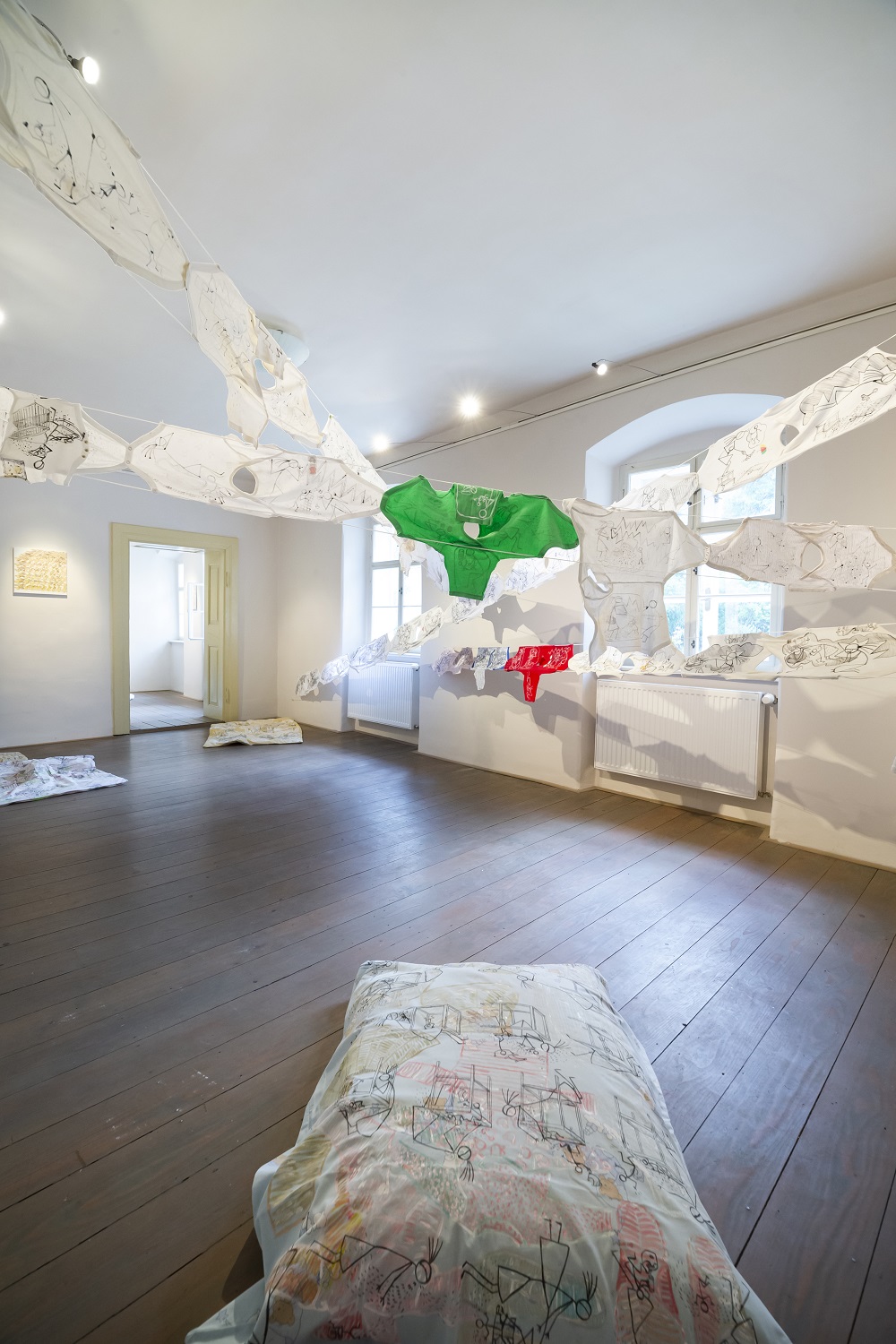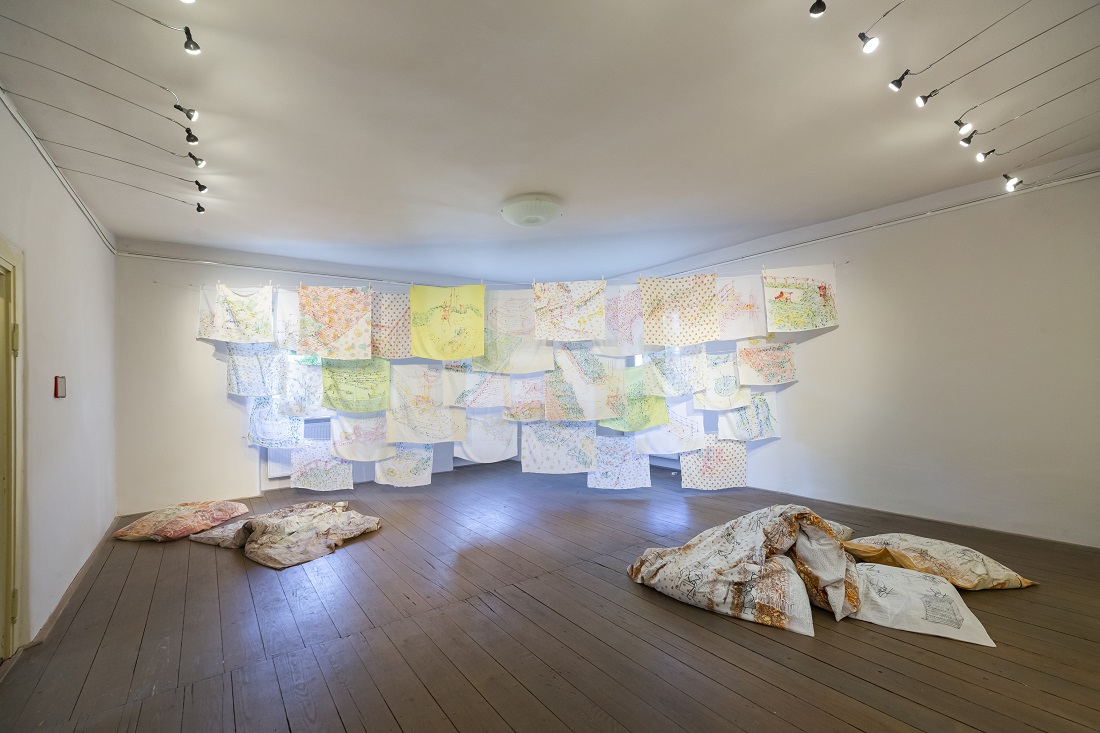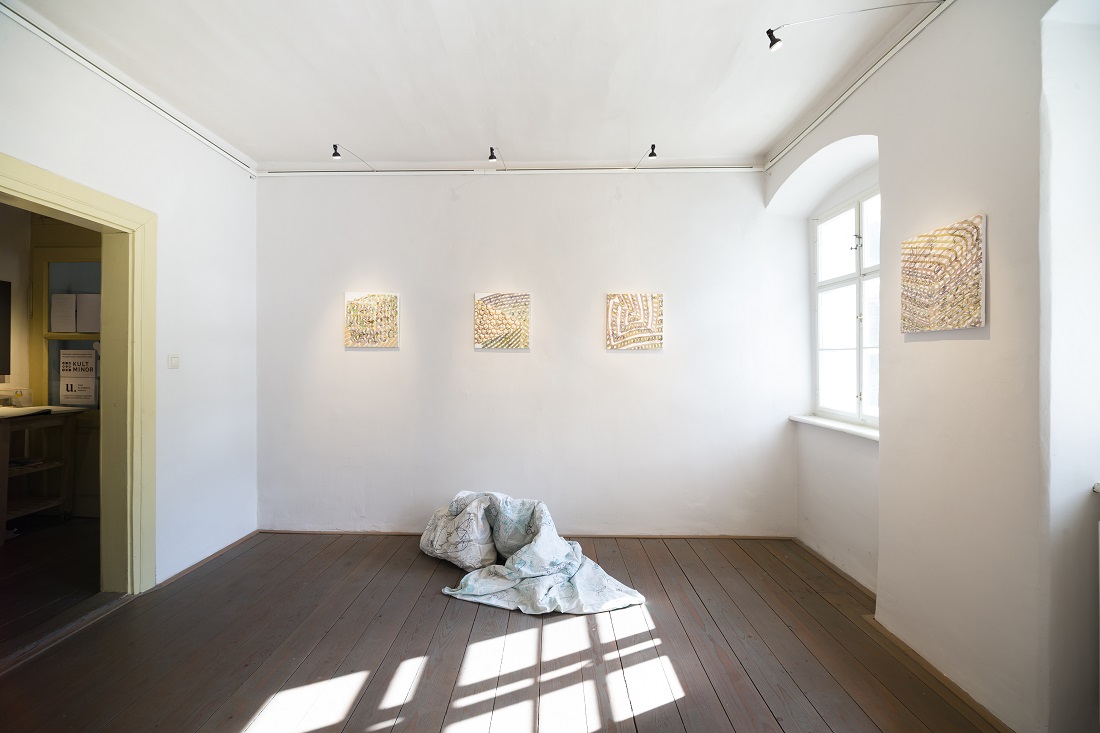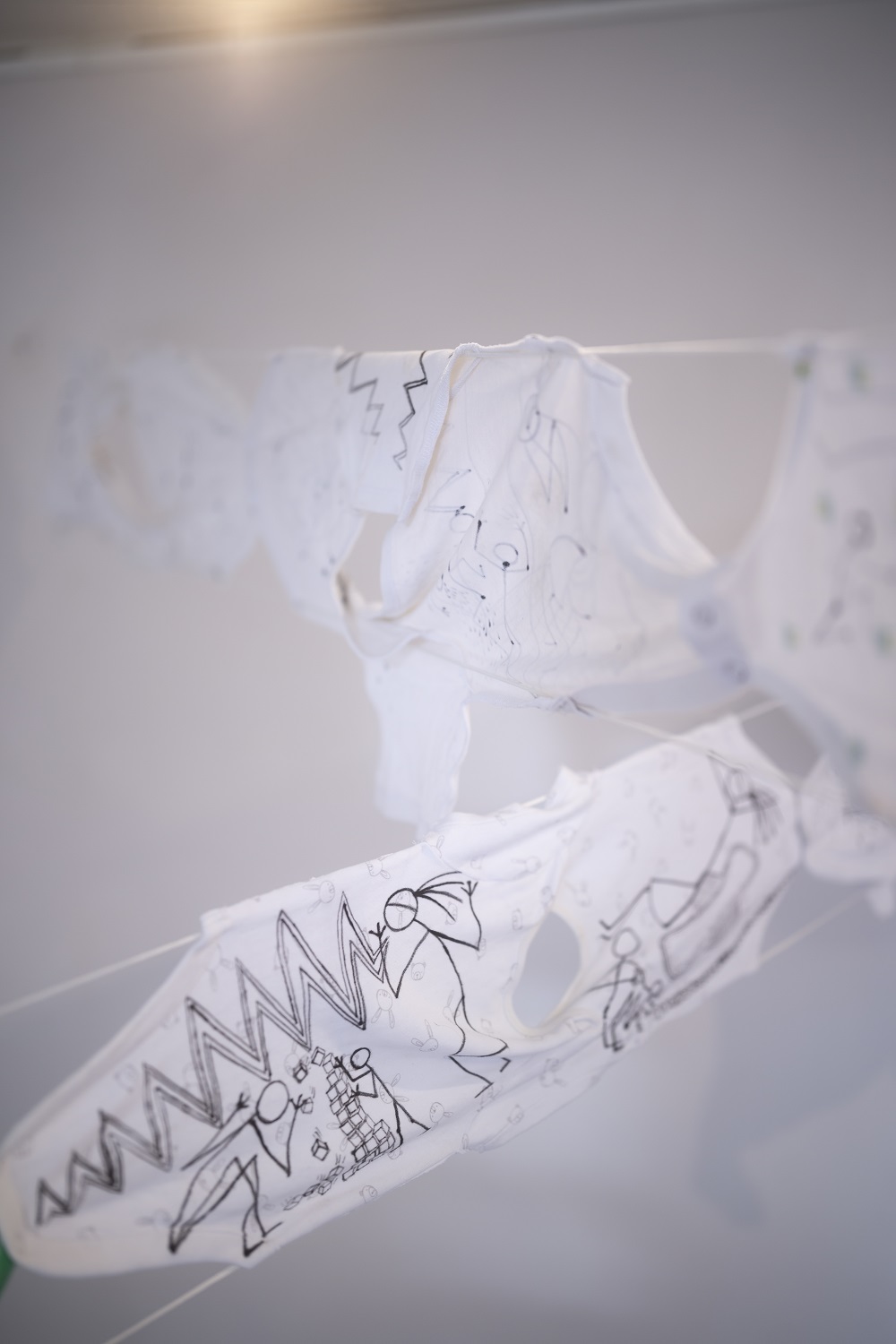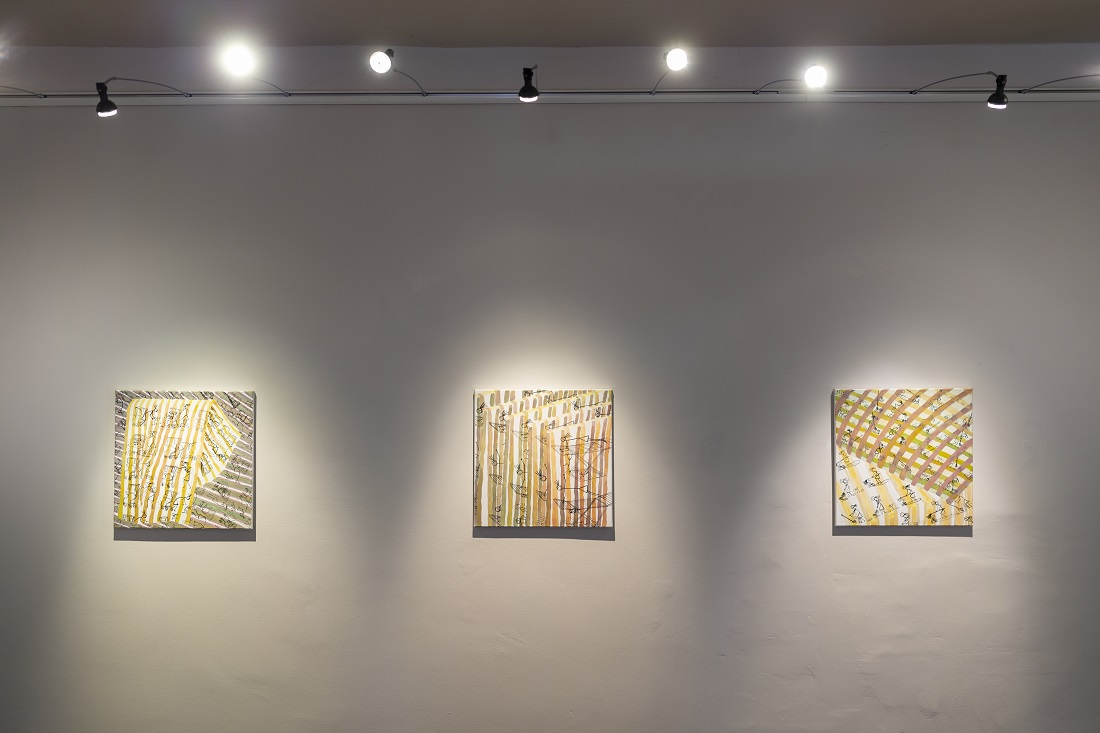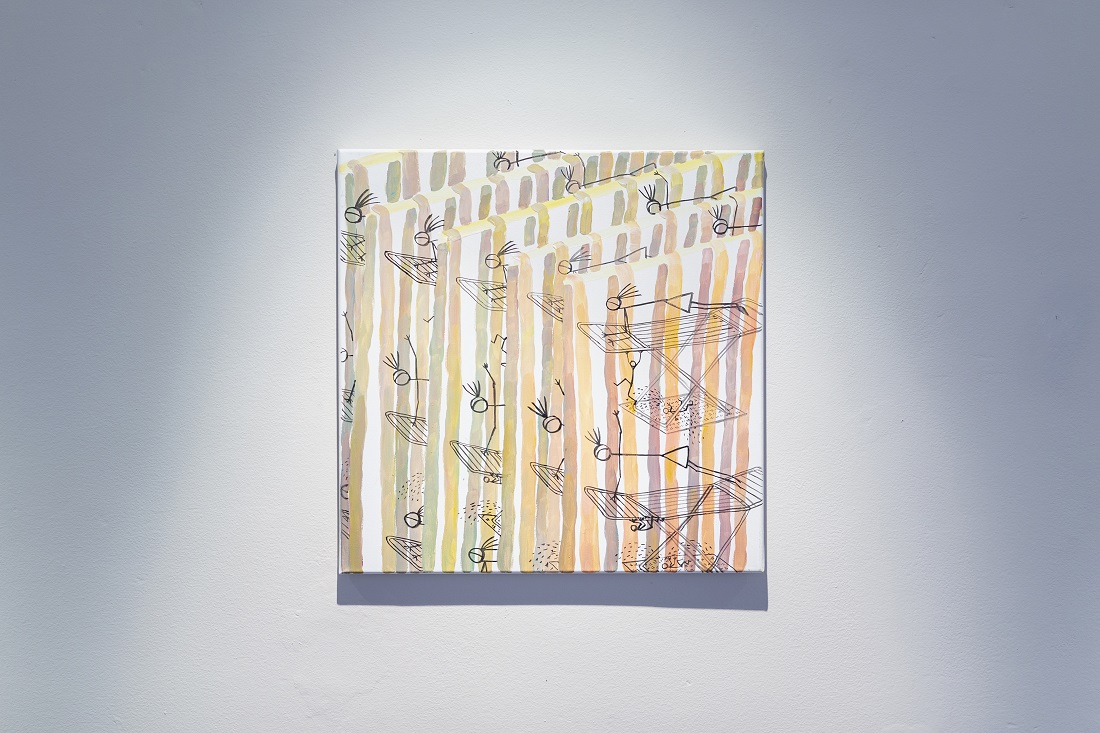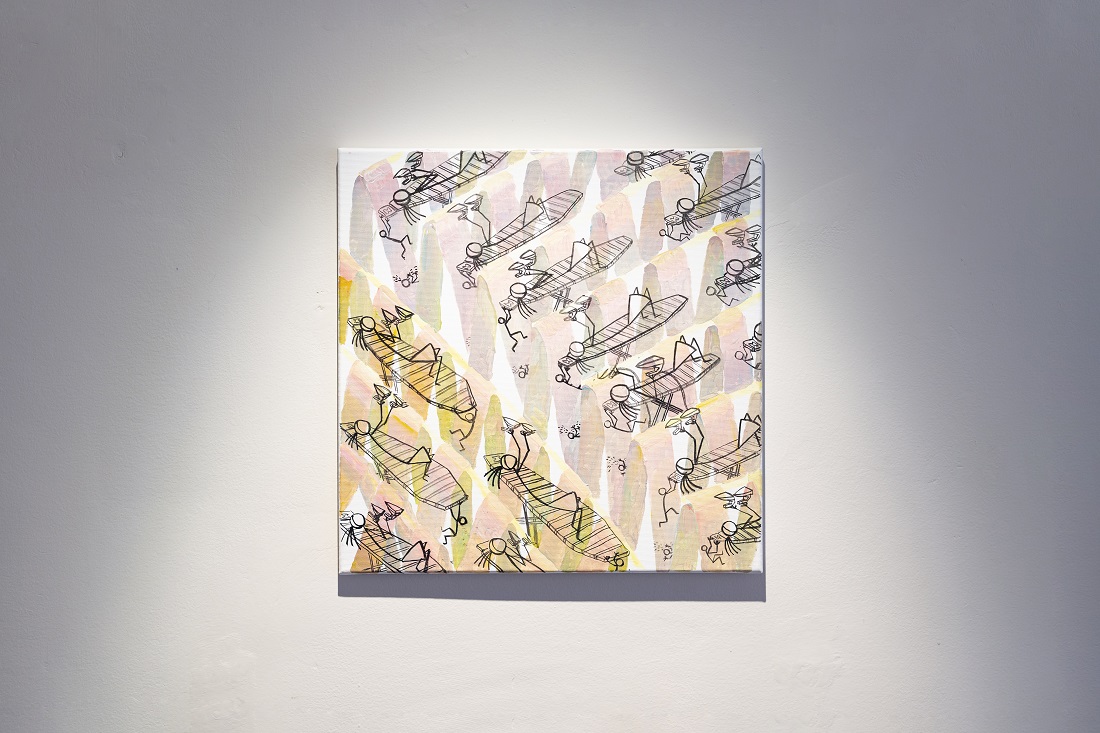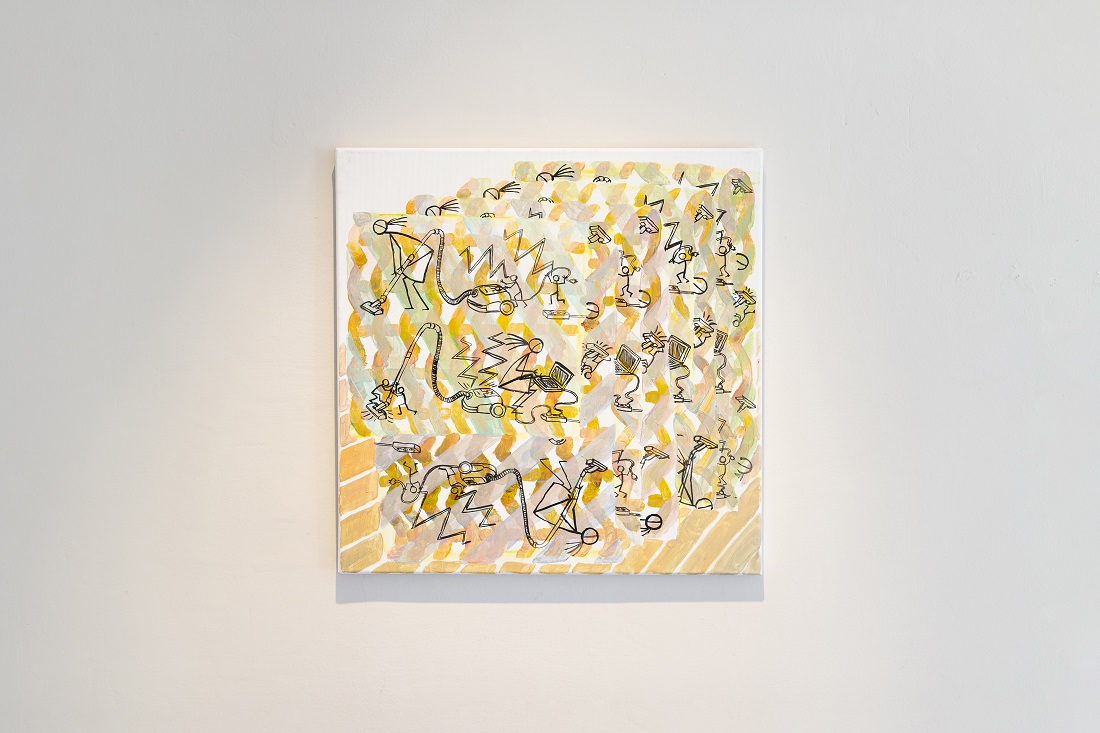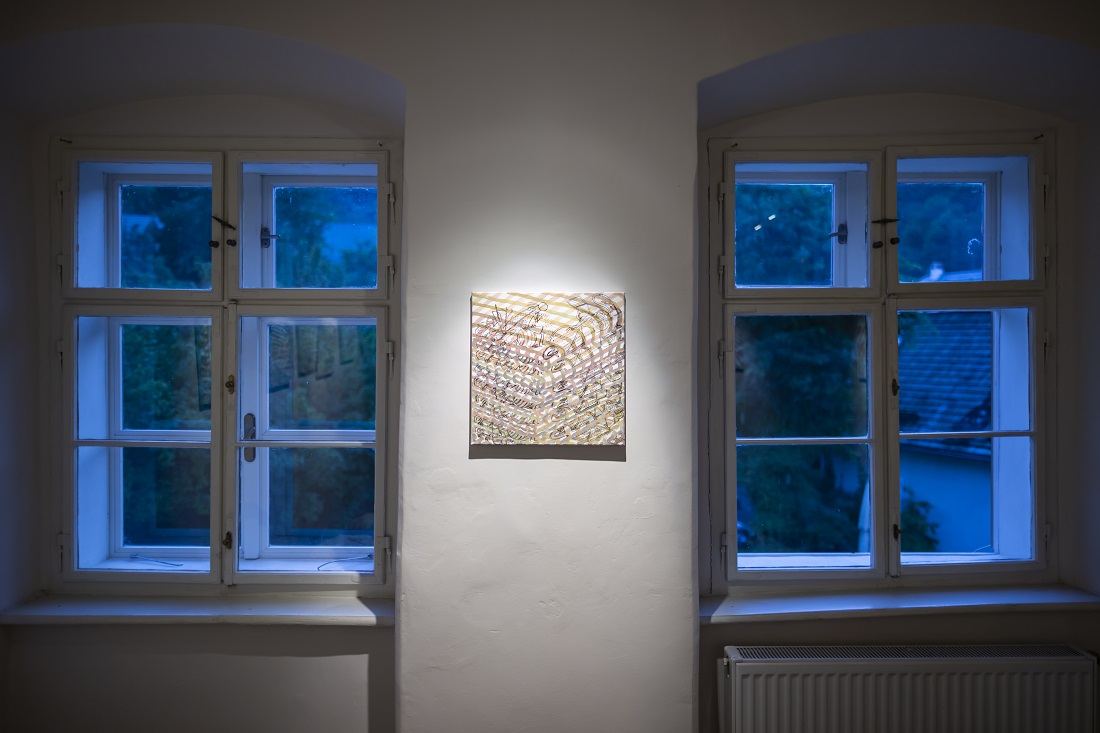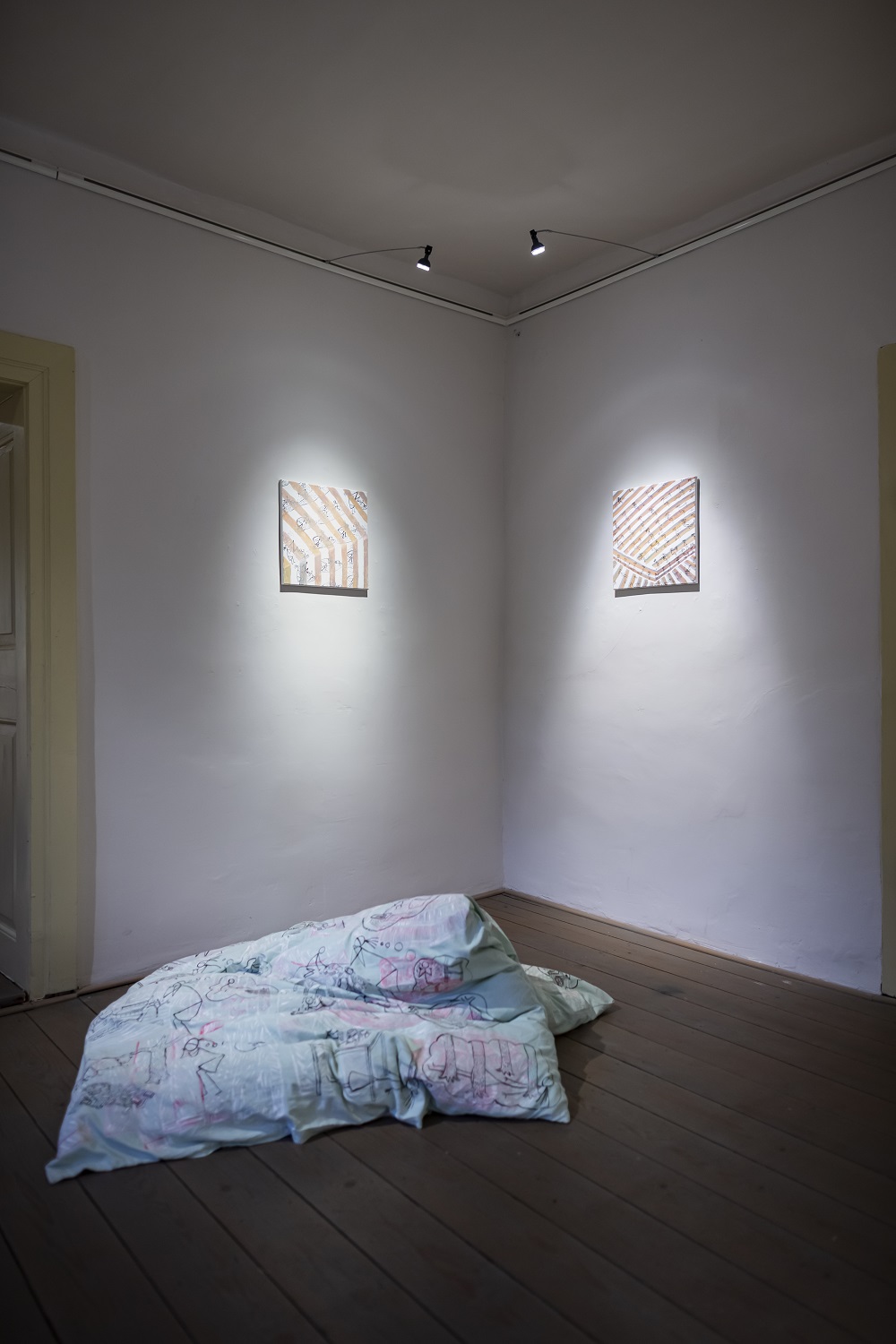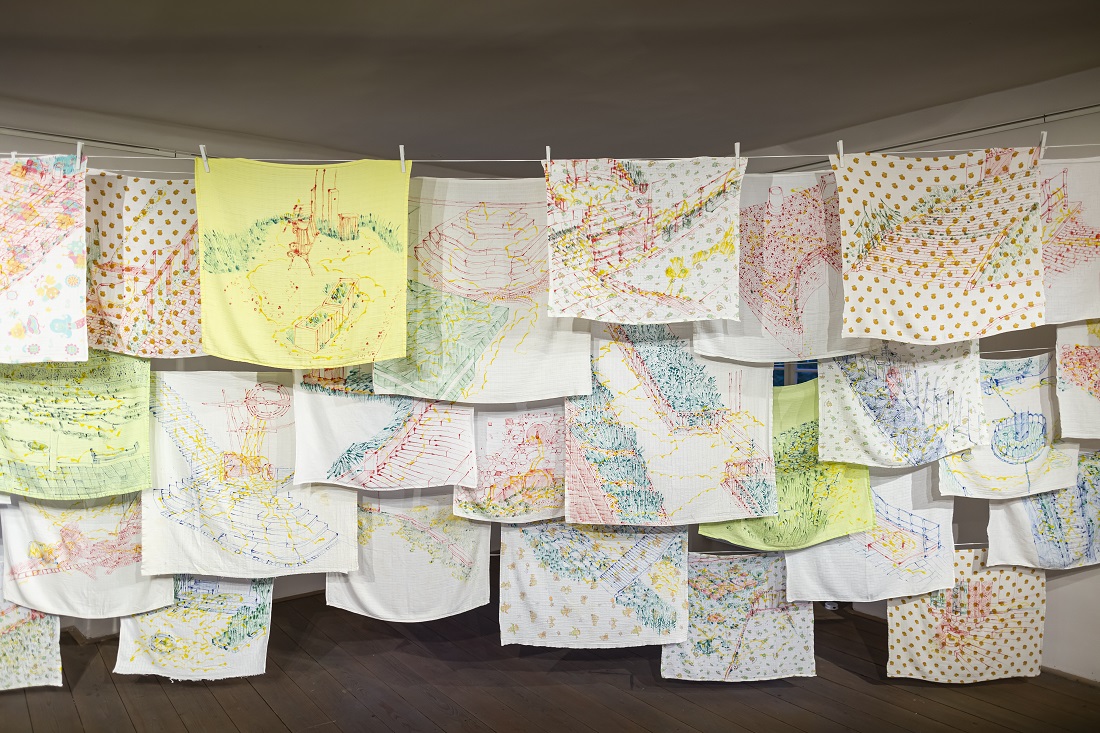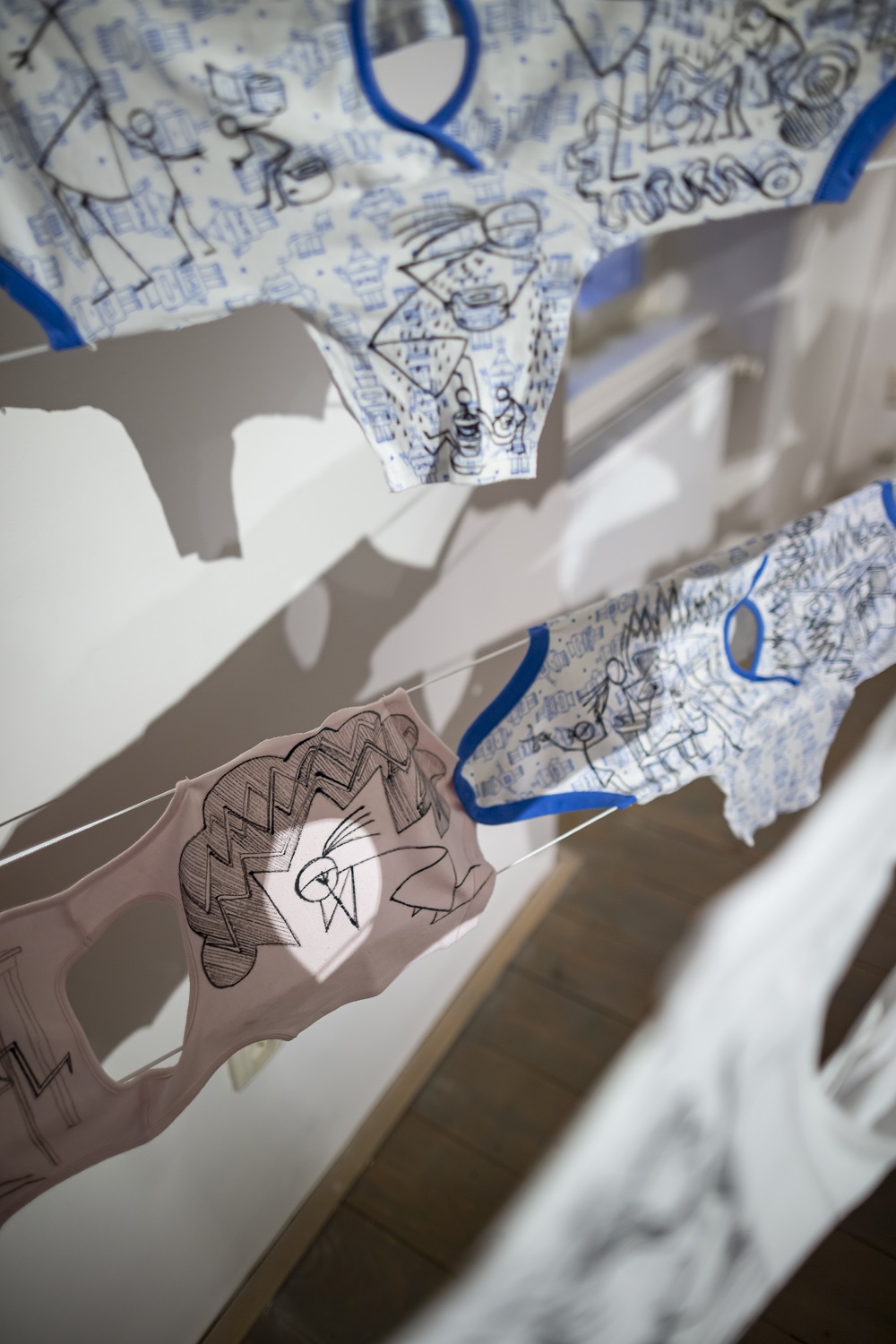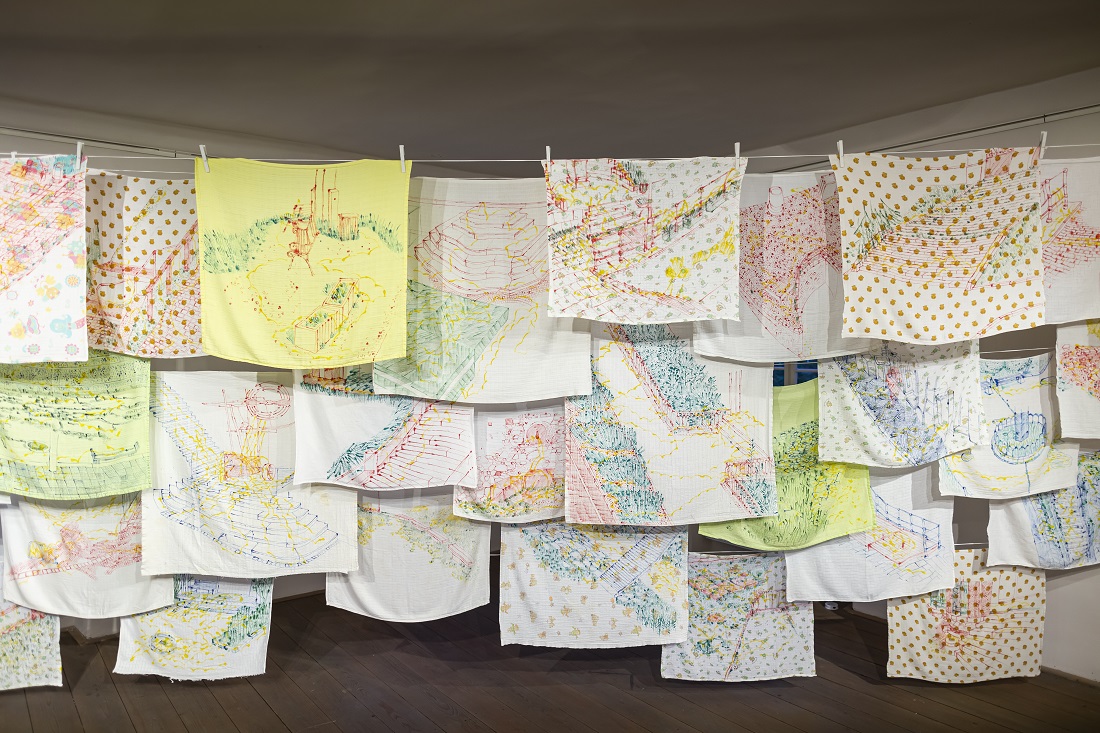Artist: Daniela Krajčová
Title: Tin Can
Venue: Schemnitz Gallery, Banská Štiavnica
Curator: Jana Babušiaková
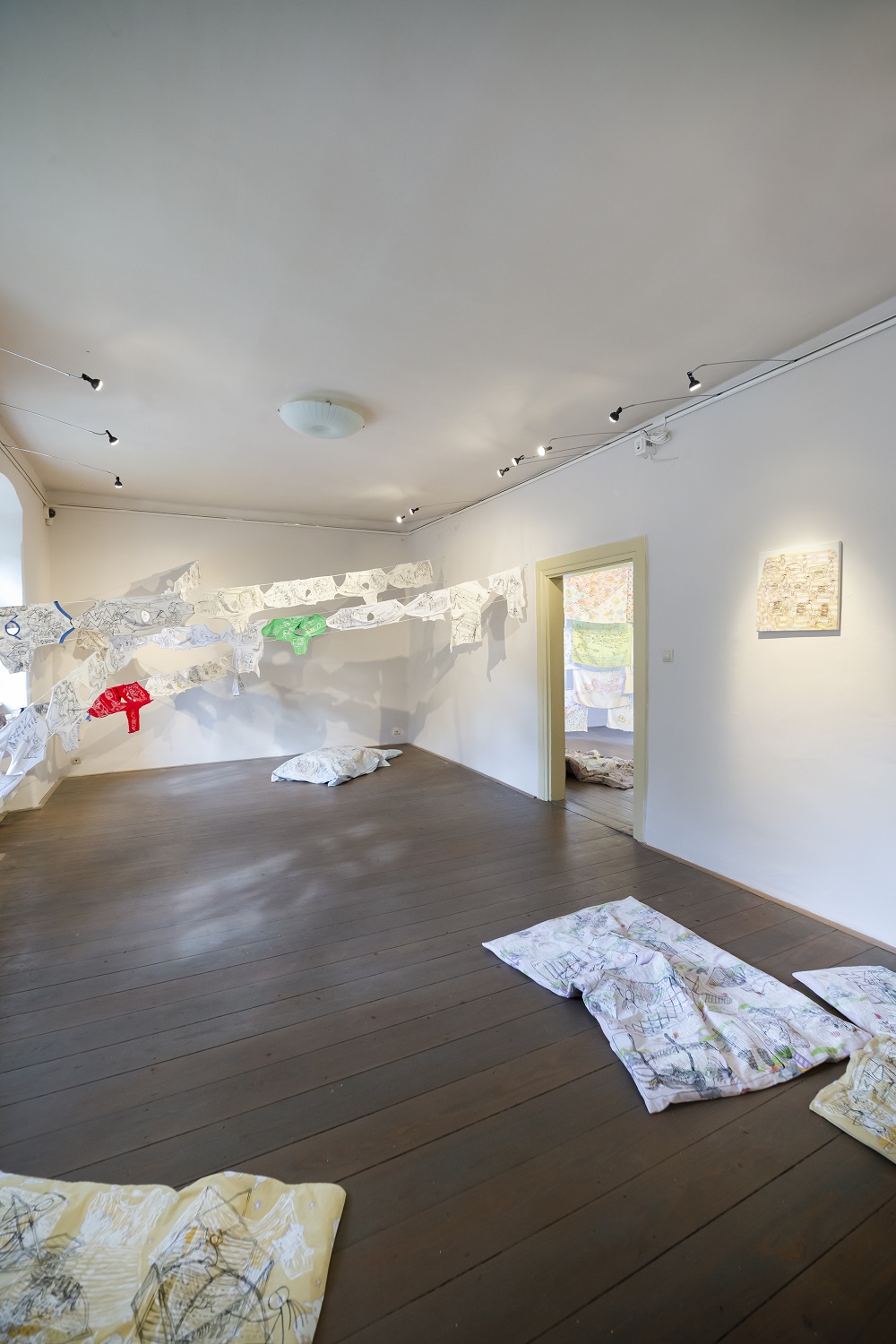
The title of this exhibition is derived from the name of a women facebook group based in Banská Štiavnica. Its initial goal was sharing – not selling or exchanging things (which was added along the way) but free will to offer excess food or clothing which people can require as well. It thus bears an aspect of community help and support in its virtual form. This facebook group name says Tin Can (the Women’s Circle) and although it is not focused on women only, plenty of women on maternity leave join it and for them, it is an important place of circulation of kids clothes when they are too big to fit into them. In this way, Tin Can became a symbol of issues debated in exhibited works within the local, as well as general context.
Daniela Krajčová is an author who continuously tackles social issues from the point of view of various communities. She often shows their real situation and problems. In her present-day role of mother she focuses on the world of child care in particular. The author gets rid of false Romanticism, anchors in reality and is based within the reality of the 21st century (comprising online communication). The basic source of inspiration is her own experience but she enlarges her view for other shared experiences and viewpoints.
The basic materials are home textiles such as bed linen, quilt covers, but also nappies and childs wear through which we can see everydayness of monotonous household chores and deceiving multitasking which goes along with a care for house and children. Daniela Krajčová also shows psychological outcomes of this kind of work – fatigue, exhaustion, frustration. Although these types of textiles remind us of body experience, their psychological and social aspect is even more important in Krajčová´s work. They allow intimate moments or sleep to happen but at the same time, someone has to care for them all the time.
Similarly to her previous work, Krajčová contextually joins the medium of drawing with the surface on which the particular drawing appears and thus she enlarges the scope of meanings. On the bed linen for example, she adds the forceful background to-do-list and creates two meaning layers. It refers to all the important things we bear in mind every day – child´s clothes, domestic duties… So the cloth is a symbol of mental load instead of the real presence of kids. And the narrative part is not about body experience either. The real body is missing in characters, they are schematic and universal as if they were from some comic book or animation and the emphasis is put on action.
In personal maps, the artist is discovering the trajectories of walks with children across well-known spaces of Banská Štiavnica. Here she changes the routine-walk into creative and active use of public spaces. She installs her drawings in the space not only creating the feeling of clothes hanging on the strings but she also creates 3D objects made of rompers and hideaways out of bed linen which destroys their initial two dimensional nature.
At the same time, she returns to a picture hanging on the wall and imitates cloth patterns on bed linen in its abstract structures. Their combining and folding creates the feeling of lattice or a labyrinth as a backdrop for the endless film of duties.
What remains is a message about the way mothers with children live in the public as well as the private space. Daniela Krajčová speaks mainly about social aspects of motherhood and its ambivalent status in terms of women’s identity. Women are often isolated in their responsibility and care for children and they have to accept a different lifepace. Which on one hand leads to connecting with a child’s world represented by duvets but on the other hand it leads to losing possibility of self- realization and social isolation. Women depicted in her drawings are trying to find ways out of it through relaxation or work or at least finding mental balance.
Krajčová´s effort is to point out the need to remain connected with „the outer world“ while struggling with home and maternal duties. The empathy and the need for support is also visible in the description of women’s group Tin Can „Sharing is a part of female nature.“
Jana Babušiaková
